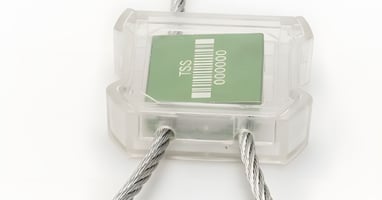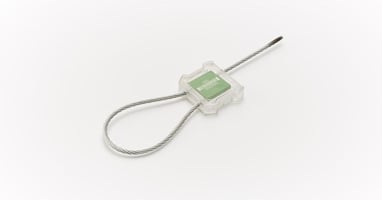In the logistics and supply industry, cargo theft has escalated into an alarming issue. For...
Questions To Ask When Choosing a Security Seal Supplier

Selecting the right security seal supplier is a critical decision for any business that relies on the safe transit of goods. The choice impacts everything from asset protection to supply chain integrity. To navigate this landscape, it helps to have a structured approach. Asking pointed questions can illuminate a supplier's capabilities and determine if they are a good fit for your specific needs. Examine these critical questions to ask when choosing a security seal supplier to ensure you find a reliable partner.
What is Your Product Range and Customization Options?
A supplier's product catalog is the first point of evaluation. Do they offer a comprehensive selection of seals? Your operations may require different types of security seals, such as bolt seals for shipping containers, cable seals for high-value cargo, and plastic seals for utility meters or tote boxes. A supplier with a diverse inventory can serve as a single source for all your needs, which streamlines procurement.
Beyond variety, customization is a major factor. Generic, off-the-shelf seals offer a basic level of security. Custom-printed seals, on the other hand, provide a much higher degree of protection against tampering and fraud. Inquire about a supplier's ability to add custom markings like your company name, logo, sequential numbers, or barcodes. This feature not only enhances security but also reinforces your brand identity throughout the supply chain.
For example, a logistics company might need bolt seals with a unique prefix and a specific color to match its branding. A food and beverage distributor might require plastic pull-tight seals with barcodes for easy scanning and inventory management. A supplier's flexibility to meet these custom requests demonstrates their technical capabilities and commitment to client-specific solutions.
What Are Your Quality Standards and Certifications?
The effectiveness of a security seal depends entirely on its quality. A seal that breaks easily or can be manipulated without leaving evidence is worse than no seal at all. For this reason, you should investigate a supplier's commitment to quality control and industry standards. A direct way to assess this is to ask about their ISO certifications.
ISO 17712 is the international standard for freight container mechanical seals. It establishes uniform procedures for the classification, acceptance, and withdrawal of these seals. Compliance with this standard indicates that a supplier's seals have undergone rigorous testing for strength, durability, and tamper-evidence. This is especially vital for international shipping, where customs authorities sometimes mandate the use of ISO 17712-compliant seals.
Request documentation or proof of certification. A reputable supplier will readily provide this information. You can also ask for product samples to conduct your own physical evaluation. Test the locking mechanism, pull strength, and durability to get a firsthand feel for the product's construction. This hands-on approach offers valuable insight that a datasheet alone cannot provide.

What Is Your Industry Experience and Expertise?
Posing the right questions to ask when choosing a security seal supplier empowers you to make an informed decision and forge a partnership that protects your assets and supports your business goals for years to come. For example, a supplier's experience within your specific industry can be a tremendous asset. A partner who understands the unique challenges and regulatory requirements of your sector can offer more than just a product. These experts can provide valuable guidance. Consider a supplier with a background in pharmaceuticals—they will be familiar with the security protocols for transporting controlled substances.
Similarly, a supplier that serves the airline industry will know the specific seal requirements for catering carts and duty-free trolleys. Their expertise means they can recommend the most appropriate seals for your applications and help you stay compliant with industry-specific regulations. This specialized knowledge adds a layer of confidence to your partnership.
Ask potential suppliers about their experience with companies like yours. Request case studies or references from clients in your field. This line of inquiry will help you gauge their depth of knowledge and determine if they can handle your particular security needs. A supplier with a proven track record in your industry is more likely to be a reliable and resourceful partner.
How Accurately Can You Guarantee Supply Chain Reliability and Lead Times?
A security seal is a small component, but its absence can bring your entire operation to a halt. A shipment cannot leave the warehouse without the proper seal. For this reason, your supplier's supply chain reliability is just as important as the quality of their products. You need a partner who can consistently deliver the seals you need, when you need them.
Inquire about their inventory levels and manufacturing capacity. Do they maintain a sufficient stock of the seals you use most frequently? What are their standard lead times for both stock and custom orders? A transparent supplier should be able to provide clear and realistic timelines for production and delivery.
Also, explore their logistical capabilities. A supplier with strategically located distribution centers can offer faster and more reliable shipping. Ask about their contingency plans for supply chain disruptions, such as material shortages or transportation delays. A proactive supplier will have systems in place to mitigate these risks and minimize any impact on your operations.

What Can I Expect from Your Customer Support and Service Experiences?
When an issue arises, the quality of a supplier's customer support becomes critical. You might have a question about a product, need to track an order, or require assistance with a custom design. A responsive and knowledgeable customer service team can resolve problems quickly and efficiently, which prevents minor hiccups from escalating into major disruptions.
Before you commit to a supplier, test their customer service. Call their support line with a few technical questions. Send an email inquiry and see how quickly you receive a thoughtful response. The way they handle these initial interactions is a good indicator of the level of support you can expect as a customer.
A strong partnership stands on a foundation of communication and trust. You want a supplier who views you as a partner, not just another transaction. Does their team take the time to understand your business and your security challenges? A supplier that offers dedicated account representatives can provide a more personalized and consistent service experience.
The Right Questions Lead to the Right Partner
Finding a security seal provider involves a detailed evaluation of their products, processes, and people. By methodically working through these areas, you can build a complete picture of a supplier's capabilities. This process is about more than just comparing prices; it's about finding a partner who can contribute to the security and efficiency of your supply chain.
Review their product range, customization options, and commitment to quality through ISO certification. Assess their industry-specific expertise and the reliability of their supply chain. Finally, evaluate the responsiveness and helpfulness of their customer support team. Start browsing high-quality industrial safety supplies for reliable security seals and other tools for keeping your operation running smoothly.




